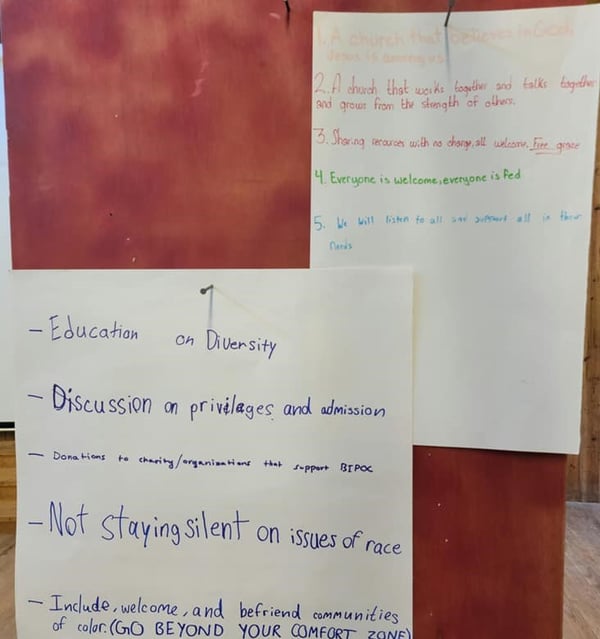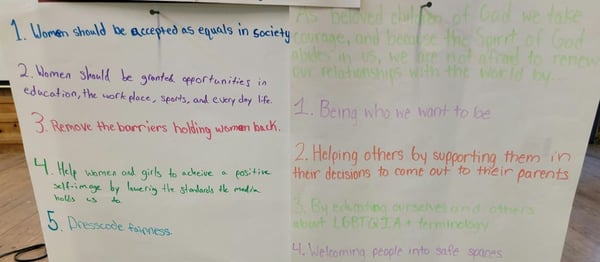A tale of two confirmation camps, both planned and executed with the best of intentions. One group of caring youth leaders used a sensitive and contemplative model of listening. They asked young participants what they needed, how they felt, and to use feeling words to describe the epic journey of transition over the last year and a half. The answers were a resounding chasm of . . . awkward mumbling and silence after a few shrugs and recitations of essential, concrete information like who had moved or completed a grade. Yes, this information is important and there can be healing in any shared space, but the engagement and enthusiasm were far from what was hoped for or anticipated after more than a year of distanced and digital gatherings.
The second group of young people weren’t asked to speak for more than a few minutes at a time. Their days were broken into chunks taking place in different areas of the campground that required physically transitioning to. Each station greeted them with dance breaks, prayers that incorporated yoga-like body movement or tapping their fingers in rhythm (Google “EFT Tapping” and consult with a mental health professional who works with self-soothing techniques to learn more about the practice), or deep breathing that might include making silly sounds. Small groups were frequently used to brainstorm around one part of an idea. Large group time was used for “sharing out.” If this sounds weird, we can be grateful that, if young people are used to anything right now, it’s stuff being a little weird. Most importantly: youth, families, and facilitators ALL reported an unexpectedly rich and joyful first summer faith-based learning experience.
The “Why?” behind it all? Trauma-informed care for adults frequently centers around creating space to slow down, practice mindful presence, and naming challenging feelings in a safe, moderated space. Trauma also frequently involves regression, our brains shutting down some of their higher functions. For young people, losing just a few years puts them into a completely different learning mode. The need to release energy, and expressing themselves physically instead of verbally is often key. Being asked to look at things in front of them instead of being self-reflective is much more in line with what they can grasp. Does this mean summer programming with youth emerging from a global pandemic needs to be simplified? Certainly not! When we asked our young folks to work in short bursts on manageable amounts of information in less overwhelming small groups, they were able to assemble their entire idea of how to reform the church. And yes, they carried the paper their group scribes wrote on all the way to the camp chapel and physically nailed it to the door.

 Youth ideas for reforming the church, nailed to the door.
Youth ideas for reforming the church, nailed to the door.



